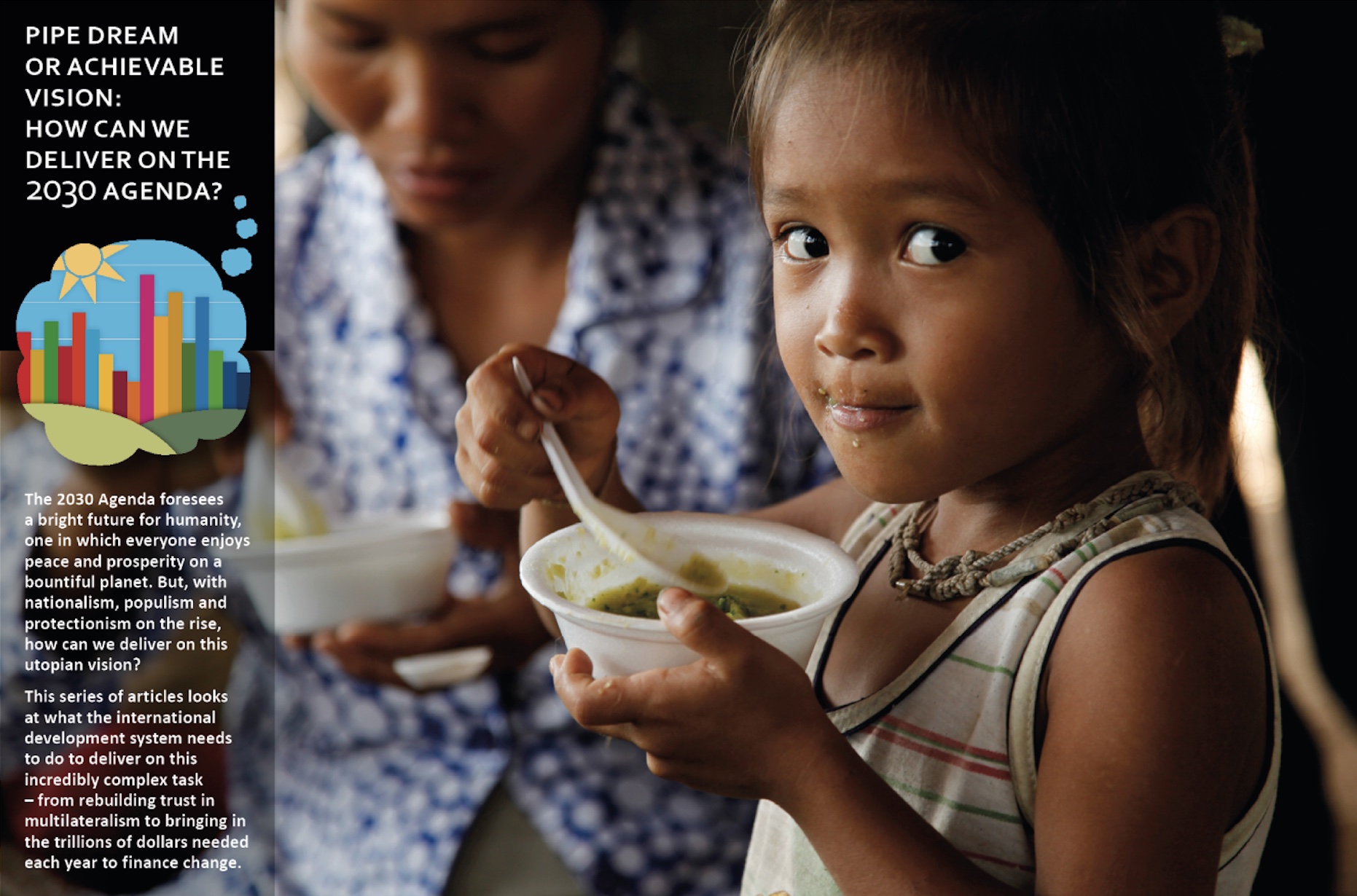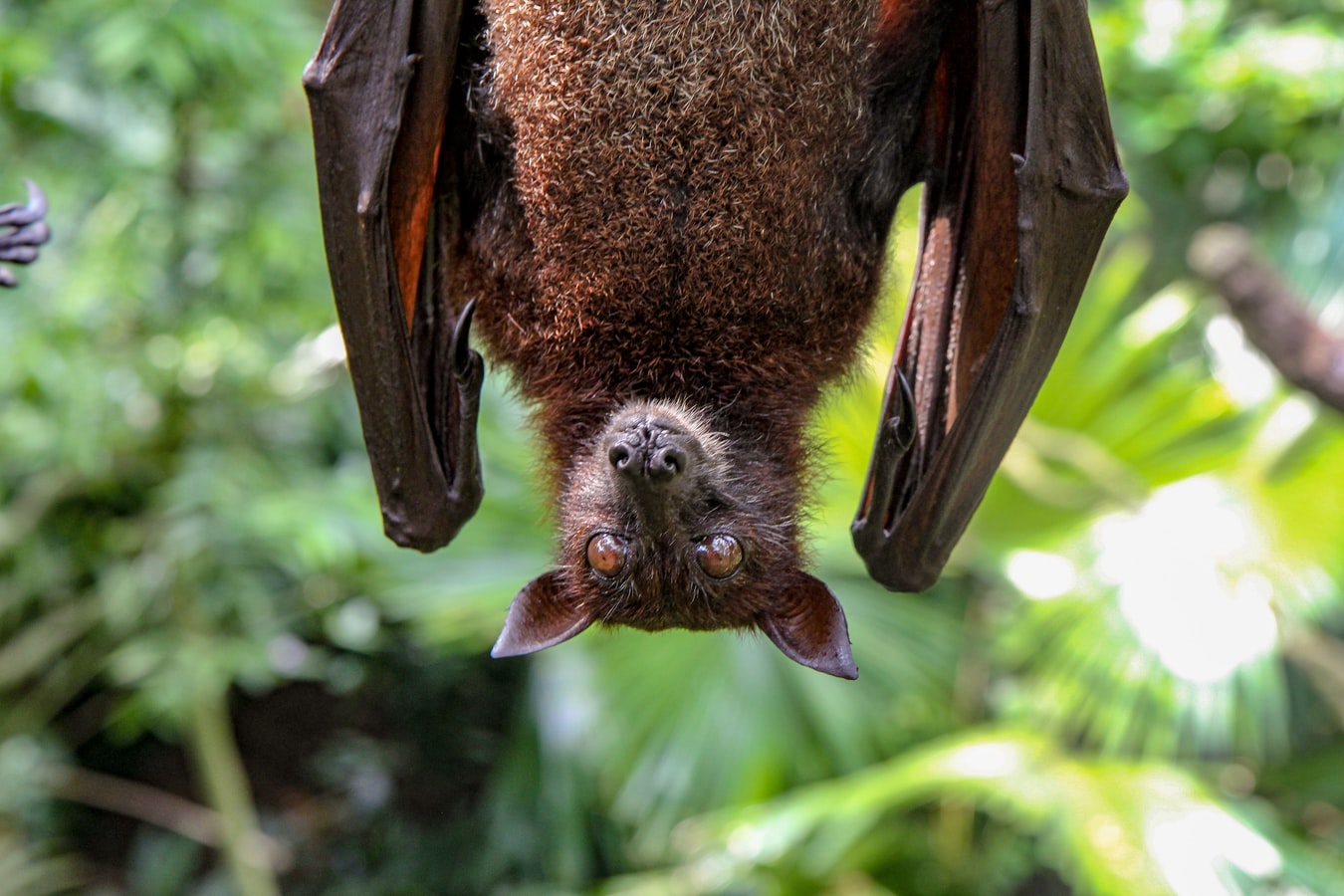SERIES TITLE: Pipe dream or achievable vision: How can we deliver on the 2030 Agenda? The 2030 Agenda foresees a bright future for humanity, one in which everyone enjoys peace and prosperity on a bountiful planet. But, with nationalism, populism and protectionism on the rise, how can we deliver on this utopian vision? This series of articles looks at what the international development system needs to do to deliver on this incredibly complex task – from rebuilding trust in multilateralism to bringing in the trillions of dollars needed each year to finance change. The first article of the series can be found here.
What started as an outbreak of a new coronavirus at the end of 2019, has now become a global pandemic with over two million confirmed cases as of mid-April 2020. The outbreak was declared a Public Health Emergency of International Concern by the World Health Organization at the end of January 2020 and in less than two months it evolved into a pandemic.
This disease has shown the world that it does not respect borders, reaching all continents and unleashing a devastating impact that goes beyond health, touching on economies, livelihoods, food security, education and social structures.
The rapid spread of COVID–19, has forced a sudden shift in how billions of people go about their daily lives, from schools and universities being closed in several countries, to doctors undertaking non-emergency medical consultations online. This disease has shown the world that it does not respect borders, reaching all continents and unleashing a devastating impact that goes beyond health, touching on economies, livelihoods, food security, education and social structures. As the Chief Economist of the Food and Agricultural Organization (FAO) Maximo Torero affirmed, “It is precisely because the coronavirus doesn’t respect borders that global cooperation is the only shot at defeating it”.
A Disease That Does Not Respect Borders
Cases from the new Coronavirus (COVID-19) are present in most countries, however some have been hit harder than others. In certain areas, the impacts of the virus have also been compounded by limitations of economic, public health and social protection systems. 135 million people worldwide were already struggling with severe food insecurity. Now, more than ever, these people need support to defend themselves against the virus.
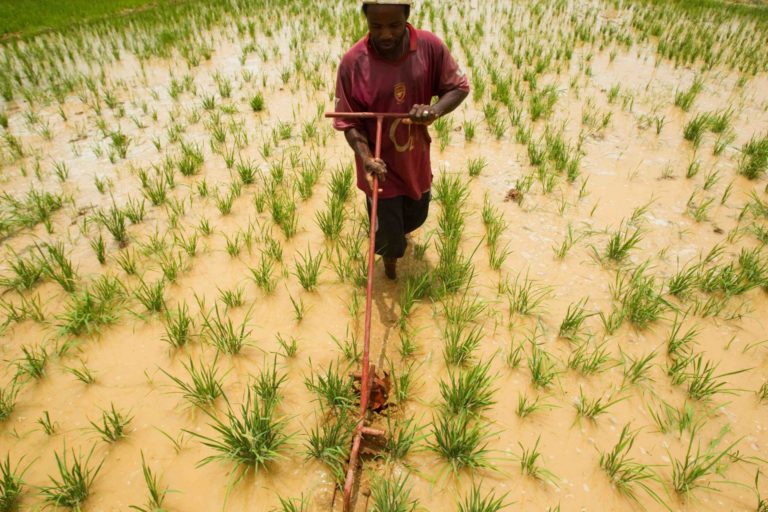
Recent pandemic impact assessments made by the FAO foresee a contraction in both the supply of and demand for agricultural products, as well as predict disruptions in the food supply chain. This could put lives and livelihoods even further at risk. Poor countries risk being more heavily hit by price increases because their populations will simply not be able to afford food. The supply and demand balance of the global food chain has already been affected in some countries, for example, with Russia, India and Argentina limiting exports of grains, Egypt intensifying the imports of grain and Canada limiting imports of onions and eggplants. Other countries have started to experience the negative impacts of inflation in the past month, such as wheat and rice prices increasing from 8% and 25% respectively, compared to March 2019.
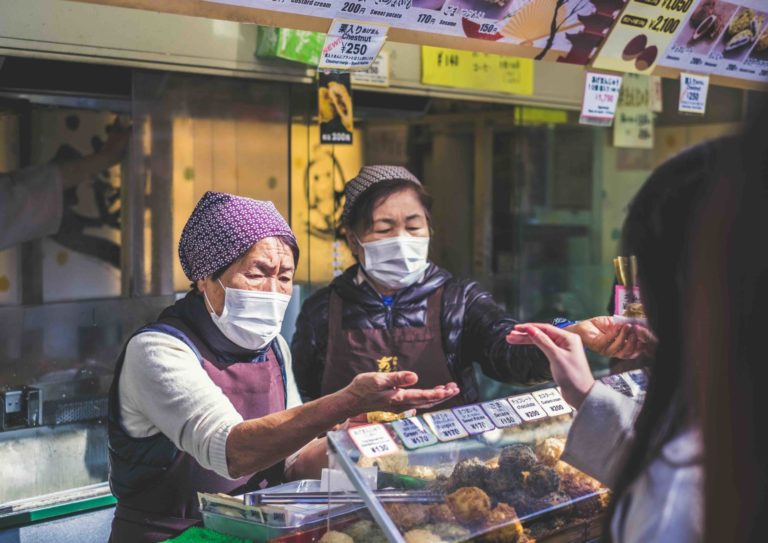
Time for a Unified, Global Response
While it is true that already vulnerable populations are at greater risk of suffering from the negative impacts of COVID-19, all countries depend on the global food supply chain, hence even a minor disruption will be perceived to some extent in all the corners of the world. In fact, all around the world, many people are being put at risk of a food security crisis due to the pandemic and the clear first signs of an economic recession. Several countries, especially in the Global South, are starting to witness how inequalities within their populations determine the harm that such outbreaks have, with workers having to choose between their lives and their livelihoods by risking being infected in their daily commutes to work rather than staying home and stop earning their daily living. Because this fast-spreading virus is indifferent to borders and nationalities, our response must be unified. We need to join forces for swift, powerful and coordinated action.
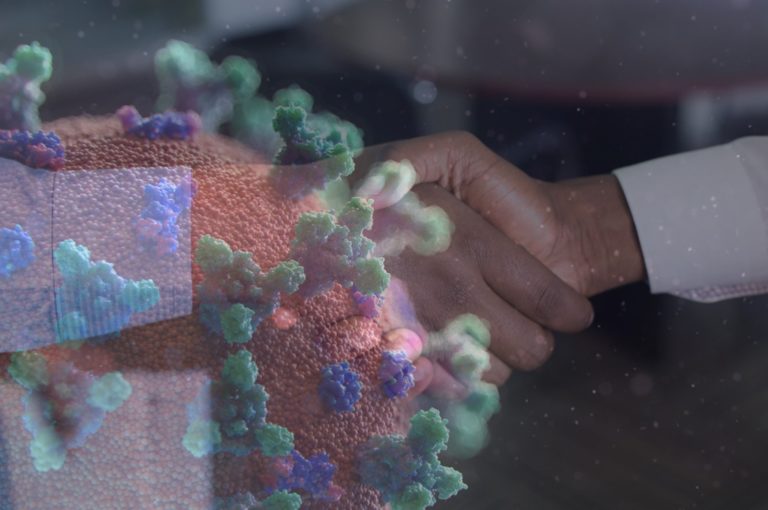
Fast-Changing Threats Call for Dynamic Solutions
Today’s interconnected world enabled by global technology, transport and trade, exponentiates the speed and impact of threats that are constantly evolving. Meanwhile, aid and development funding has been disjointed and dominated by earmarked contributions, which only finance specific purposes or projects. Earmarked funding of total United Nations Development system resources increased from 56% to 75% between 1998 and 2013, however, this approach delays responses to emergencies, creates fragmented solutions and makes it harder to keep up with ever-evolving threats. A more flexible, holistic approach is needed so that efforts can be directed when and where they will have the most impact.
Joining the flexible funding umbrella programme of FAO will actively strengthen donor countries’ capacities for results-driven action on the ground, and can make local, regional and global food systems more resilient to fast-changing challenges such as the novel Coronavirus.
Editor’s Note: The opinions expressed here by Impakter.com columnists are their own, not those of Impakter.com — Featured Photo Credit: ©FAO


